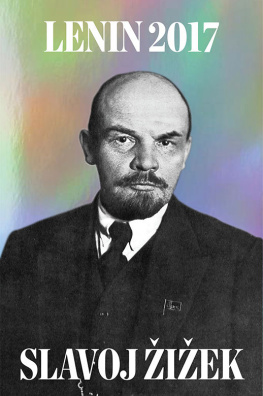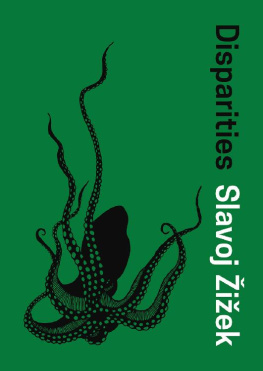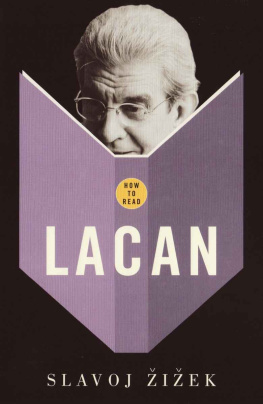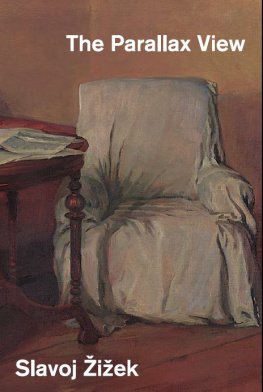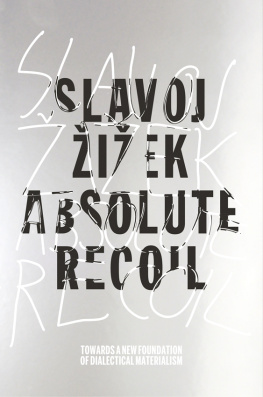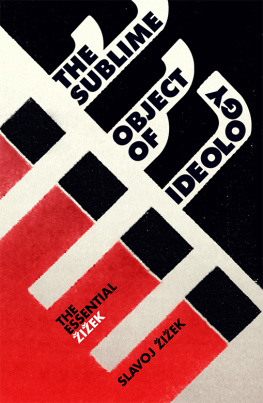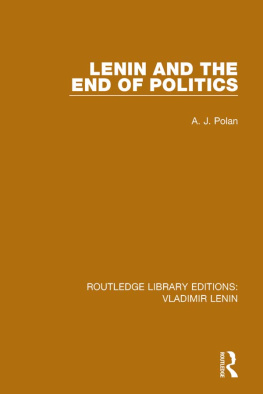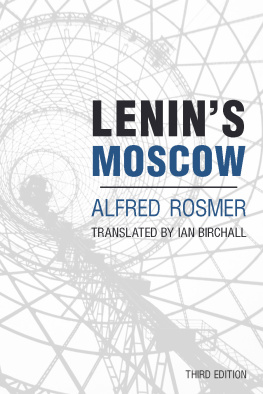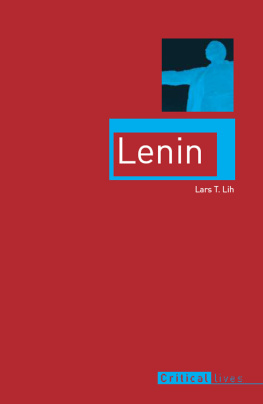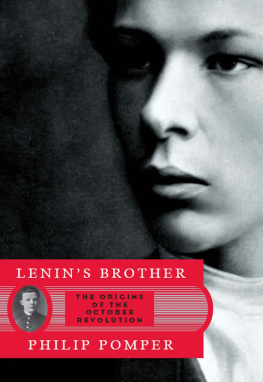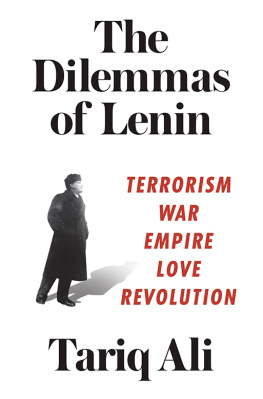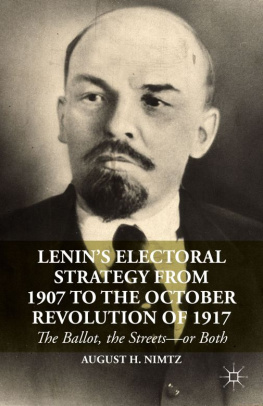V. I. LENIN
Introduction: Remembering,
Repeating and Working Through
Remembering and Repeating
The title of Freuds short text from 1914, Remembering, Repeating and Working Through, provides the best formula for the way we should relate today, 100 years later to the event called the October Revolution. The three concepts Freud mentions form a dialectical triad: they designate the three phases of the analytical process, and resistance intervenes in every passage from one phase to the next. The first step consists in remembering the repressed past traumatic events, in bringing them out, which can also be done by hypnosis. This phase immediately runs into a deadlock: the content brought out lacks its proper symbolic context and thus remains ineffective; it fails to transform the subject and resistance remains active, limiting the amount of content revealed. The problem with this approach is that it stays focused on the past and ignores the subjects present constellation which keeps this past alive, symbolically active. Resistance expresses itself in the form of transference: what the subject cannot properly remember, she repeats, transferring the past constellation onto a present (e.g., she treats the analyst as if he were her father). What the subject cannot properly remember, she acts out, reenacts and when the analyst points this out, her intervention is met with resistance. Working through is working through the resistance, turning it from the obstacle into the very resort of analysis, and this turn is self-reflexive in a properly Hegelian sense: resistance is a link between object and subject, between past and present, proof that we are not only fixated on the past but that this fixation is an effect of the present deadlock in the subjects libidinal economy.
With regard to 1917, we also begin by remembering, by recalling, the true history of the October Revolution and, of course, its reversal into Stalinism. The great ethico-political problem of the communist regimes can best be captured under the title founding fathers, founding crimes. Can a communist regime survive the act of openly confronting its violent past in which millions were imprisoned and killed? If so, in what form and to what degree? The first paradigmatic case of such a confrontation was, of course, Nikita Khrushchevs secret report on Stalins crimes to the 20th Congress of the Soviet Communist Party in 1956. The first thing that strikes one in this report is the focus on Stalins personality as being the key factor in the crimes, and the concomitant lack of any systematic analysis of what made those crimes possible. The second feature is its strenuous effort to keep the Origins clear: not only is the condemnation of Stalin limited to his arrest and killing of high-ranking Party members and military officers in the 1930s (where rehabilitations were very selective: Bukharin, Zinoviev, etc., continued to be non-persons, not to mention Trotsky), ignoring the great famine of the late 1920s; but the report is also presented as announcing the return of the Party to its Leninist roots, so that Lenin emerges as the pure Origin spoiled or betrayed by Stalin. In his belated but perspicuous analysis of the report, written in 1970, Sartre noted that
it was true that Stalin had ordered massacres, transformed the land of the revolution into a police state; he was truly convinced that the USSR would not reach communism without passing through the socialism of concentration camps. But as one of the witnesses very rightly points out, when the authorities find it useful to tell the truth, its because they cant find any better lie. Immediately this truth, coming from official mouths, becomes a lie corroborated by the facts. Stalin was a wicked man? Fine. But how had Soviet society perched him on the throne and kept him there for a quarter of a century.
Indeed, is not Khrushchevs later fate (he was deposed in 1964) proof of Oscar Wildes quip that if one tells the truth, one will sooner or later be caught out? Sartres analysis nonetheless falls short on one crucial point: even if Khrushchev was speaking in the name of the system the machine was sound, but its chief operator was not; this saboteur had relieved the world of his presence, and everything was going to run smoothly again Although the opportunist motives for this daring move are plain enough, there was clearly more than mere calculation to it, a kind of reckless excess which cannot be accounted for by strategic reasoning. After the speech, things were never the same again, the fundamental dogma of infallible leadership had been fatally undermined; no wonder then, that, in reaction to the speech, the entire nomenklatura sank into temporary paralysis. During the speech itself, a dozen or so delegates suffered nervous breakdowns and had to be carried out and given medical help; a few days later, Boleslaw Bierut, the hard-line general secretary of the Polish Communist Party, died of a heart attack, and the model Stalinist writer Alexander Fadeyev shot himself. The point is not that they were honest communists most of them were brutal manipulators who harboured no subjective illusions about the nature of the Soviet regime. What broke down was their objective illusion: the figure of the big Other that had provided the background against which they were able to pursue their ruthless drive for power. The Other onto which they had transposed their belief, which as it were believed on their behalf, their subject-supposed-to-believe, disintegrated.
Khrushchevs wager was that his (limited) confession would strengthen the communist movement and in the short term he was right. One should always remember that the Khrushchev era was the last period of authentic communist enthusiasm, of belief in the communist project. When, during his visit to the United States in 1959, Khrushchev made his famous defiant statement to the American public that your grandchildren will be communists, he effectively spelled out the conviction of the entire Soviet nomenklatura. After his fall in 1964, a resigned cynicism prevailed, up until Gorbachevs attempt at a more radical confrontation with the past (the rehabilitations then included Bukharin, but for Gorbachev at least Lenin remained the untouchable point of reference, and Trotsky continued to be a non-person).
With Deng Xiaopings reforms, the Chinese proceeded in a radically different, almost opposite, way. While at the level of the economy (and, up to a point, culture) what is usually understood as communism was abandoned, and the gates were opened wide to Western-style liberalisation (private property, profit-making, hedonist individualism, etc.), the Party nevertheless maintained its ideologico-political hegemony not in the sense of doctrinal orthodoxy (in the official discourse, the Confucian reference to the Harmonious Society practically replaced any reference to communism), but in the sense of maintaining the unconditional political hegemony of the Communist Party as the only guarantee of Chinas stability and prosperity. This required a close monitoring and regulation of the ideological discourse on Chinese history, especially the history of the last two centuries: the story endlessly varied by the state media and textbooks is one of Chinas humiliation from the Opium Wars onwards, which ended only with the communist victory in 1949, leading to the conclusion that to be patriotic is to support the rule of the Party. When history is given such a legitimising role, of course, it cannot tolerate any substantial self-critique; the Chinese had learned the lesson of Gorbachevs failure: full recognition of the founding crimes will only bring the entire system down. Those crimes thus have to remain disavowed: true, some Maoist excesses and errors are denounced (the Great Leap Forward and the devastating famine that followed; the Cultural Revolution), and Dengs assessment of Maos role (70 per cent positive, 30 per cent negative) is enshrined as the official formula. But this assessment functions as a formal conclusion which renders any further elaboration superfluous: even if Mao was 30 per cent bad, the full symbolic impact of this admission is neutralised, so he can continue to be celebrated as the founding father of the nation, his body in a mausoleum and his image on every banknote. We are dealing here with a clear case of fetishistic disavowal: although we know very well that Mao made errors and caused immense suffering, his figure is kept magically untainted by these facts. In this way, the Chinese communists can have their cake and eat it: the radical changes brought about by economic liberalisation are combined with the continuation of the same Party rule as before.

